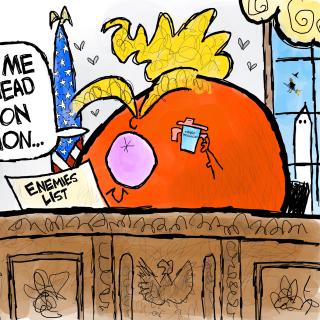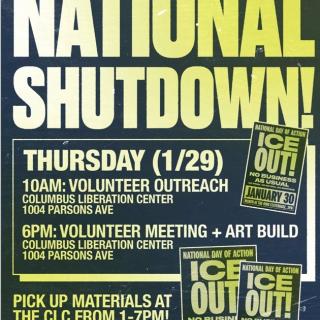Advertisement
Whenever I think of Richard Nixon, a wave of pity washes over me. Has there ever been a mainstream politician in America who was so hated, so reviled, so disrespected as Nixon? (I’m sure my esteemed editor would say that Nixon deserved every last brickbat thrown at him.) Like Shaft, Nixon was a complicated man–charming and cold, clever and calculating, craven and crafty. Dead for more than twenty years–he died a month before Jacqueline Kennedy Onassis, the widow of his late rival, John F. Kennedy, in the same hospital in which she was treated–he would have been 102 years old on January 19. The former president is still a fascinating study.
Perhaps more than most people, Nixon was the product of his upbringing. While his family wasn’t poor, money was tight. His father, Frank, was flinty, proud and a bully who blamed his lack of success on others. Nixon always described his mother, Hannah Milhous Nixon, as a saint, and her family thought she had married beneath herself. She was a devout Quaker who adhered to the traditional Quaker teaching of finding the light within–she said her daily prayers inside a closet–while Nixon’s father took the boys to raucous religious revivals, including one held by the evangelist, Aimee Sempel McPherson.
As a child Nixon was prim and proper, devoted to order and rules, and unusually solitary. Indeed, he was his own best company. He seemed to hate being touched or showing emotions of any kind, although he claimed he cried daily over the death of his brother, Harold, the shining light of the family. Still, Nixon worked hard to please both parents, especially his father. His Whittier High School class photo shows a hard, unsmiling young man with a shock of dark hair and a sideward glance. A lifetime of slights is already etched into his countenance. Nixon seems angry at the world.
The shy, awkward Navy veteran was recruited into politics by the California GOP. He aced his audition before a citizen’s committee, and soon found himself among the hundreds of WW II veterans across the country who entered politics. He handily won his first campaign through a mixture of over-the-to; a devoted, supportive, and hard-working wife; and the machinations of his “political consultant”–a new term in those days–Murray Choitner. Denied a seat on the Judiciary Committee, the new senator ended up on the House Education and Labor Committee with another first-term congressman, John F. Kennedy. Surprisingly, he found a kindred spirit in JFK; he too was private, somewhat shy, and concealed his emotions. They both were veterans of WW II and shared a love of and fascination with America’s place in the world. It was the beginning of a complex relationship.
Nixon’s well-known aversion to the media was not paranoia. The east coast-dominated press and Washington’s elite movers and shakers openly disliked him. Their disdain for Nixon was a mixture of class and establishment snobbery. Furthermore, his lack of polish and sophistication made him an easy target. Nixon appears to have never had a chance with the media, especially in the 1960 campaign against the dazzling and rich JFK.
As president, Nixon was determined to make his mark as a peace maker. He also paid great attention to the window dressing of politics–he asked that the soundtrack to Victory at Sea be played as often and loudly as possibly during inaugural festivities–and it’s clear to see that every Republican presidential candidate since has taken a page from his book. Nixon cared about improving himself; he frequently made lists on his ubiquitous legal pads about how he could improve as a man, husband, father and president. But he was often defeated by class resentment and a simmering anger against those whom he thought had it easier than had he. Even during his presidency, he was still fighting to prove he was a better president than JFK.
One of Nixon’s chief failures was his staff. He surrounded himself with slippery characters who alienated him from his family, cabinet and more circumspect friends, and supported his baser instincts. In spite of his tough, gruff exterior, he detested conflict and unpleasant thoughts, which made it virtually impossible for him to discipline or fire people. Moreover, he had a maudlin streak which made it easy for him to think that other people were responsible for his troubles. Early during the Watergate story, he had his best opportunity to cut his losses, but self pity and the urge to best his opponents won out.
Evan Thomas makes Nixon look better than he really was on race. While it’s true that at the beginning of his adulthood and early in his political life he was better than most of his contemporaries on race–he had considerable black support in the presidential campaign of 1960–he stoked the fire of white resentment with his 1968 campaign commercials and so called southern strategy. America is still reaping the racial discord he whipped up.
Nixon was one of the most polarizing politicians of the twentieth century. But in that century, he was at the center of and played pivotal roles in virtually every major event or controversy since World War II. That alone ensures he will always be a fascinating subject for biographers.



